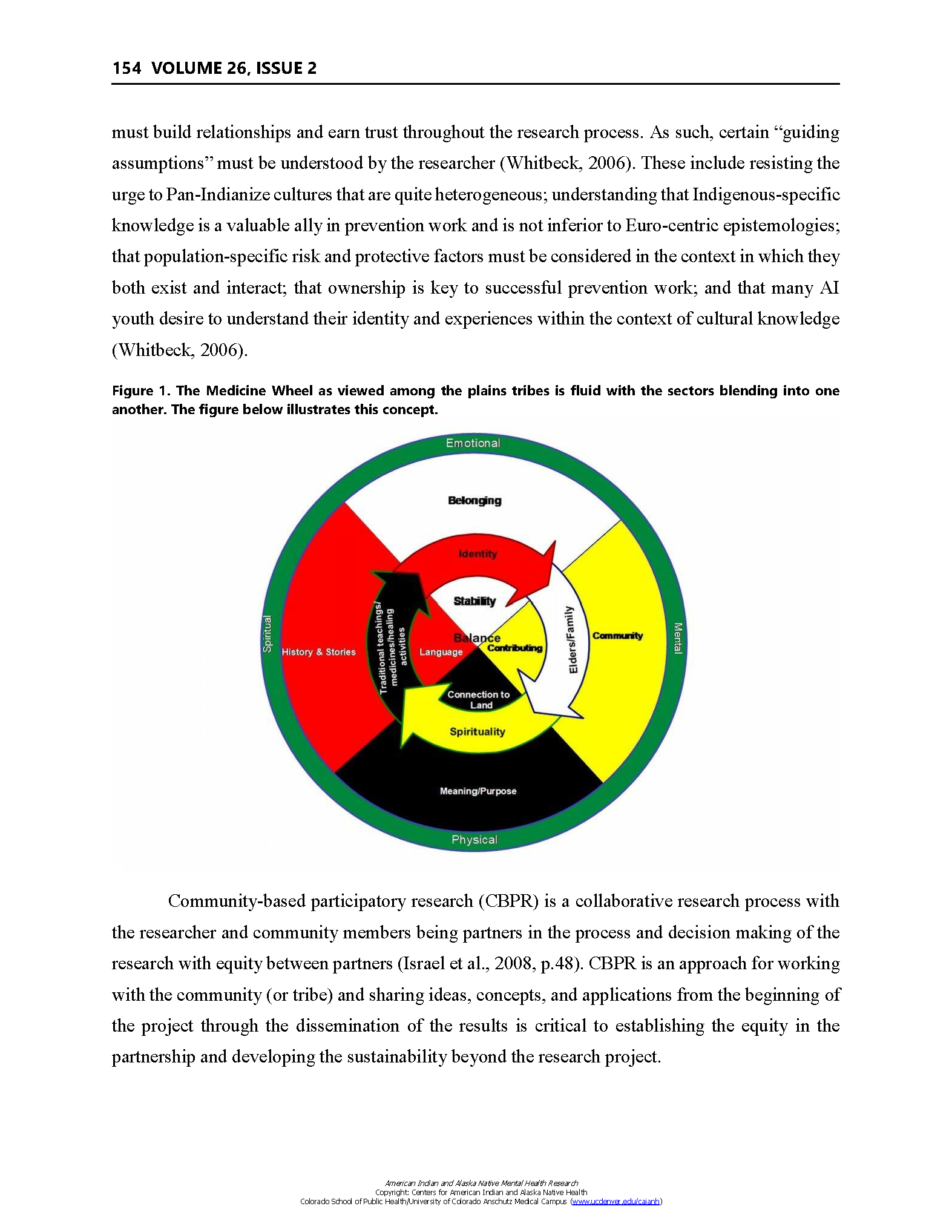Home > Useful Resources
The following is a list of useful documents and resources that can be referenced when working with Native populations:
Link: https://www.washington.edu/doit/native-americans-and-mental-health
Publication Date: September 2019
Produced by SAMHSA, the first video is based on the “seven generations” philosophy of American Indian culture, this video builds a powerful connection across the generations, while offering a powerful message to young males to seek help if they are having thoughts of suicide. The second video appeals to the pride and strength of Alaska Native culture, using storytelling and a generational approach, to remind young males that it is up to their generation to carry forward their proud culture.
“Seven Generations” was produced with the participation of several American Indian tribes and cultural advisors on location in Montana.“Heart of the Land” was produced with the help of a Native Alaskan film director, cultural advisors and members of several tribes in Alaska. SAMHSA is grateful for their assistance.

Publication Date: September 2019
This article examines what gives American Indian youth hope. The project included 56 rural tribal youth in focus groups across a Northern Plains reservation. The participants completed a Youth Personal Balance Tool to provide perspective on the balance according to a medicine wheel model of their lives. The focus groups asked questions from a strengths-based perspective about what gives them hope and how they could show others they were hopeful. The project culminated with the youth developing creative representations of hope and presenting these projects to family and community. Written by Jacqueline S. Gray, PhD, Lisa Schrader, Devon S. Isaacs, BA, Megan K. Smith, MA, and Naomi M. Bender, PhD.
Publication Date: February 2019
Developed by SAMHSA, TIP 61 provides behavioral health professionals with practical guidance about Native American history, historical trauma, and critical cultural perspectives in their work with American Indian and Alaska Native clients. The TIP discusses the demographics, social challenges, and behavioral health concerns of Native Americans. It highlights the importance of providers’ cultural awareness, cultural competence, and culture-specific knowledge. The TIP also helps administrators, program managers, and clinical supervisors foster a culturally responsive environment for American Indian and Alaska Native clients. Specific topic areas include workforce development strategies, program and professional development considerations, and culturally responsive policies and procedures.
Link: https://store.samhsa.gov/system/files/tip_61_aian_full_document_020419_0.pdf
Publication Date: January 2009
Developed by SAMHSA, this guide enhances cultural competence when serving American Indian and Alaska Native communities. It covers regional differences, cultural customs, spirituality, communication styles, the role of veterans and older adults, and health disparities.
Link: https://store.samhsa.gov/system/files/sma08-4354.pdf
Publication date: 2016
Published by Council of National Psychological Associations for the Advancement of Ethnic Minority Interests (CNPAAEMI), this monograph on testing and assessment among racial/ethnic minorities is the fourth in a series of monographs to address diversity issues pertaining to core activities undertaken by psychologists in service of the major racial/ethnic minority populations in the United States.
Link: https://www.apa.org/pi/oema/resources/testing-assessment-monograph.pdf
Link: https://store.samhsa.gov/system/files/pep19-antipsychotic-bp.pdf
Link: https://content.govdelivery.com/accounts/USSAMHSA/bulletins/240e853